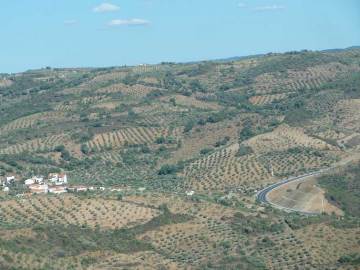
M Angelo Rodrigues
Polytechnic Institute of Bragança, Portugal
Title: Eighteen years of research on soil management systems in rainfed olive groves
Biography
Biography: M Angelo Rodrigues
Abstract
Despite the increased acreage of high-density irrigated orchards, traditional rainfed olive groves maintain huge social importance. While in irrigated orchards cover cropping is generalized, in the rainfed groves the ground continues to be tilled or maintained bare by using herbicides. Cover cropping is important as is an effective mean of reducing soil erosion. However, the covers consume water which can severely reduce olive yields. Over the last 18 years, experimental work has been done in searching for a solution for these orchards. This work summarizes the results obtained in several field trials, which included several soil management treatments, such as conventional tillage, bare soil by using residual or post-emergence herbicides, natural vegetation mowed or grazed, legumes of erect habit grown as green manures and self-reseeding annual pasture legumes. The results indicate that withdrawing tillage and allowing the development of the root system significantly increases olive yield. Cover crops of natural vegetation control soil erosion and improve several soil fertility parameters but significantly reduce olive yield through excessive competition for water. Green manures are difficult to manage since they require be sowing and incorporating into the soil by tillage. If the green manures are managed as mulching it causes significant nitrogen losses to the atmosphere. In these orchards the theoretical model that aggregate the best results is the grown of very early-maturing self-reseeding annual legumes. These plants provide enough protection of the soil, fix nitrogen in rates able to maintain the trees at a nutrition levels higher than the application of 60 kg N ha-1 year-1 and ensures high olive yields due to the little competition for water. These covers proved to be the only way to make profitable organic farming, an interesting alternative for these low input agricultural systems.


